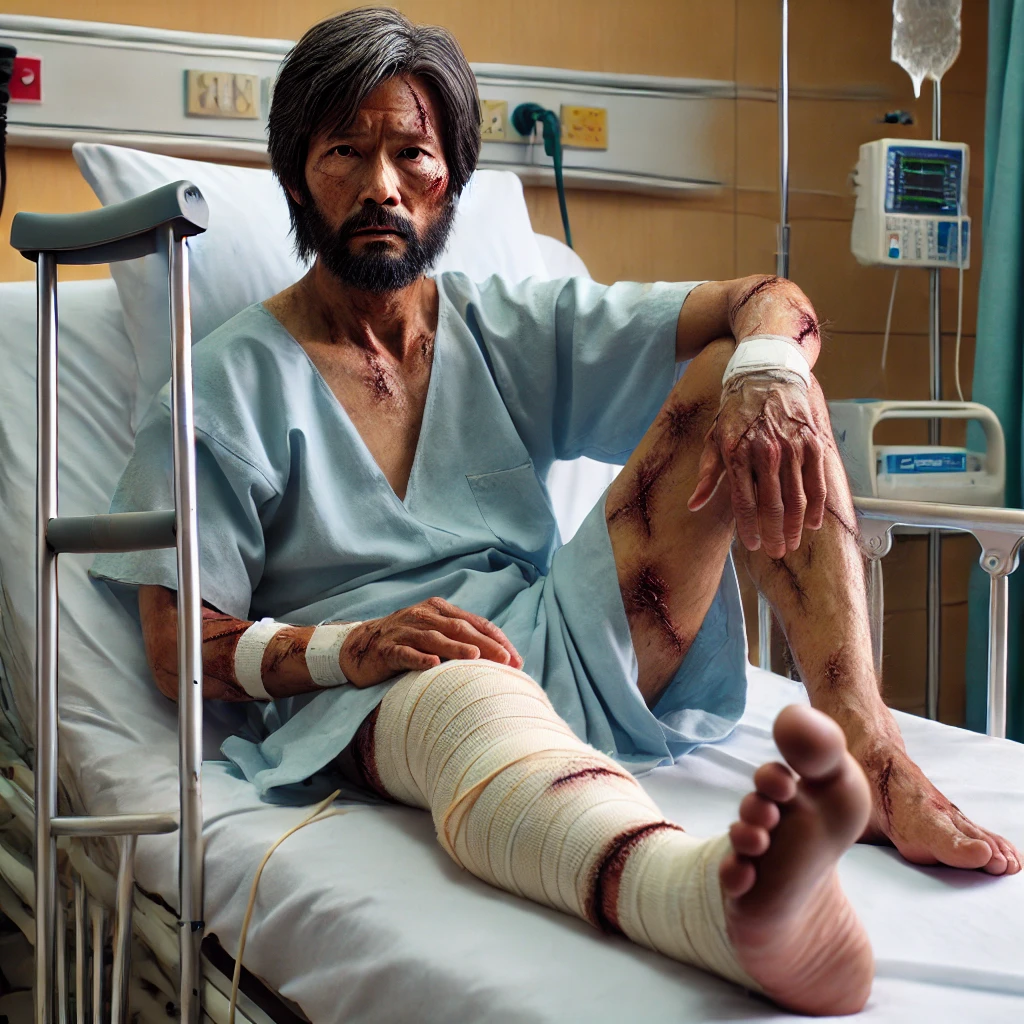China Taiping’s FWMI plan distinguishes itself in the market with the following key features:
1. Per Disability Coverage Instead of Annual Limit

Unlike most other insurers that cap their coverage based on an annual limit, China Taiping’s FWMI operates on a per disability basis. This means that if a worker suffers from multiple unrelated medical conditions within a year, each condition is covered separately up to the maximum policy limit.
✅ Advantage: Employers benefit from broader coverage for their workers, as each illness or injury is treated as an independent claim, preventing early exhaustion of the coverage limit.
2. As-Charged Coverage Without Sub-Limits on Surgical Procedures
China Taiping offers as-charged coverage for hospitalisation and surgery, meaning the insurer reimburses the actual medical expenses incurred, without setting individual sub-limits on specific procedures.
✅ Advantage: Unlike plans that impose caps on certain surgeries, China Taiping ensures that workers receive the necessary medical treatment without financial constraints.
3. Comprehensive Medical Coverage
China Taiping’s FWMI plan provides:
- Up to $60,000 per disability for inpatient hospitalization and day surgery.
- Pre-hospitalisation coverage for consultations and diagnostic tests within three months before admission.
- Post-hospitalisation coverage for follow-up treatments within three months after discharge.
- Personal accident protection for death and permanent disability.
- Death benefit payout for the worker’s family.
- COVID-19 hospitalisation coverage (excluding Stay-Home Notice periods).
Comparison with Other FWMI Providers in Singapore
When evaluating FWMI plans, employers should compare insurers based on coverage structure, co-payment policies, and additional benefits. Here’s how China Taiping compares with some other major insurers:
1. Per Disability Coverage vs. Annual Limit
| Insurer | Coverage Structure | Annual / Per Disability Limit |
|---|---|---|
| China Taiping | Per Disability | $60,000 per disability |
| Income Insurance | Annual Limit | $60,000 per year |
| Liberty Insurance | Annual Limit | $60,000 per year |
| Raffles Health Insurance | Hybrid (First-dollar per disability, additional annual limit) | $30,000 per disability, up to $200,000 annual limit |
✅ Advantage of China Taiping: If a worker suffers from multiple illnesses or injuries in one year, they can claim up to $60,000 for each condition, rather than being restricted to an annual limit.
2. Co-Payment Requirements
| Insurer | Employer Co-Payment Requirement |
|---|---|
| China Taiping | 25% for claims exceeding $15,000 |
| Income Insurance | Option to waive co-payment |
| Liberty Insurance | 25% for claims exceeding $15,000 |
| Raffles Health Insurance | No co-payment on certain plans |
🚫 China Taiping’s Consideration: Employers must co-pay 25% of the amount exceeding $15,000, which may increase their financial burden. Some competitors (e.g., Income Insurance) offer options to waive this co-payment.
3. Additional Benefits Comparison
| Insurer | Repatriation Coverage | Personal Accident Coverage | Outpatient Benefits |
|---|---|---|---|
| China Taiping | Not explicitly mentioned | ✅ Yes | ❌ No |
| Income Insurance | ✅ Yes | ✅ Yes | ✅ Yes (e.g., kidney dialysis) |
| Liberty Insurance | ✅ Yes | ✅ Yes | ❌ No |
| Raffles Health Insurance | ✅ Yes | ✅ Yes | ✅ Yes (some outpatient treatments) |
✅ Advantage of Other Insurers: Insurers like Income and Liberty include repatriation benefits, which cover costs if a worker needs to be sent home due to severe illness or death.
🚫 China Taiping’s Consideration: If employers need repatriation coverage, they may need to purchase an add-on or consider a different insurer.
Pros and Cons of Choosing China Taiping FWMI
✅ Pros:
✔ Per Disability Coverage: Allows claims up to $60,000 per separate illness or injury, unlike annual caps imposed by most insurers.
✔ As-Charged Coverage: No sub-limits on surgical procedures, reducing financial shortfalls for major surgeries.
✔ No Minimum Headcount: Suitable for SMEs and businesses with a small number of foreign workers.
✔ Comprehensive Medical Coverage: Includes pre- and post-hospitalisation expenses, COVID-19 hospitalization, and personal accident protection.
🚫 Cons:
✖ Employer Co-Payment on Large Claims: 25% co-payment for claims exceeding $15,000, unlike some insurers that offer full coverage.
✖ No Explicit Repatriation Benefit: Unlike some competitors, China Taiping does not prominently list repatriation coverage, which may require additional insurance.
China Taiping’s per disability coverage structure is a key differentiator, offering enhanced protection for multiple medical conditions in a year. However, employers should assess whether co-payment obligations and the absence of repatriation coverage align with their business needs.

